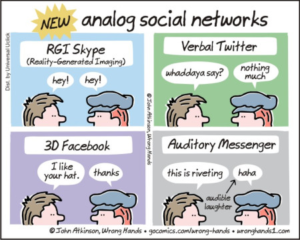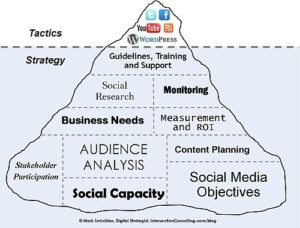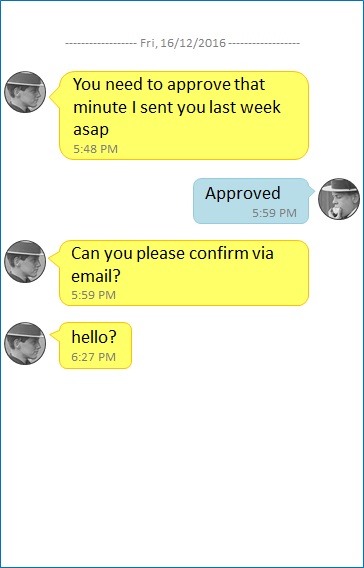Metadata, migration and decommissioning enquiries March 27, 2017 No Comments
We’ve had quite a few enquiries on information systems – from systems upgrades to migration, and also risks around decommissioning of legacy systems.
Q1. Why do we need to keep on migrating metadata of old records that have been destroyed or missing?
A: There is a need to retain the metadata of old records, regardless of whether the records have been destroyed or missing, as the metadata provides evidence of records which the organisation had created or in its possession at some stage.
Information Flow March 15, 2017 No Comments
Information Flow within organisations
Information flows within an organisation, either formally or informally. The free flow of facts, ideas, data and opinions is constant and the lifeblood of any organisation.
Information flows can also result in records being created with all the inherent issues associated with information integrity, accessibility, security and preservation.
On information risks, training, and digital recordkeeping issues March 8, 2017 No Comments
Last week we had our first Digital Implementers‘ Group meeting for 2017. We gave a preview of our new workshop –  Introduction to Information Risk Assessment, which set the tone of the meeting.
Introduction to Information Risk Assessment, which set the tone of the meeting.
The Workshop
The workshop is designed to help participants understand the risk assessment process within the context of the Standard on records management. The workshop provides a methodology to help organisations identify the risks, assess them and develop strategies to minimise their impact. This workshop builds on others assisting in skill development for recordkeeping and compliments the “Managing Recordkeeping Risks in Business Systems workshop.” Read the rest of this entry »
Social media enquiries on Workplace by Facebook, Twitter feeds and archiving February 23, 2017 No Comments
In keeping with our social media theme for the month of February, we’ve collated some of  the enquiries and our responses relating to social media.
the enquiries and our responses relating to social media.
Q1: Our organisation is currently rolling out Workplace by Facebook for staff. We will be using this site to collaborate on work matters and as a means to reduce emails. Could you provide any information/advice/support as the State Archives and Records Authority regarding this?
We are reviewing our “Strategies for Managing Social Media Records” guidance February 15, 2017 No Comments
 It has been nearly four years since we published our guidance “Strategies for managing social media records.” We have updated the guideline with relevant information on new technologies to ensure that we are providing you with current information.
It has been nearly four years since we published our guidance “Strategies for managing social media records.” We have updated the guideline with relevant information on new technologies to ensure that we are providing you with current information.
However, news, blogs, directives, etc. on the @Potus handover, and the transition strategy for the other social media accounts or digital assets, afforded us an excuse to review our guidance.
Tweets, Facebook posts, and other social media information are State records February 6, 2017 No Comments
Following our posts on text messages and messaging services, we would like to remind NSW public offices that messages  or information posted on social media channels/sites/platforms are State records.
or information posted on social media channels/sites/platforms are State records.
The State Records Act 1998 (the Act) defines a record as ‘any document or other source of information compiled, recorded or stored in written form or on film, or by electronic process, or in any other manner or by any other means’ (s.3).
The Act goes on to define a State record as ‘any record made and kept, or received and kept, by any person in the course of the exercise of official functions in a public office, or for any purpose of a public office, or for the use of a public office’ (s.3).
The Act uses a broad definition for what constitutes a record. This ensures that different formats that come into use as a result of new technologies are governed by the Act. Read the rest of this entry »
6 steps to eApprovals: the PSC & DPC interagency collaboration project experience January 18, 2017 No Comments
![]() Last year, we published a case study outlining the Department of Premier and Cabinet’s (DPC) Electronic Document and Records Management (EDRM) Program strategy, including their electronic approvals (eApprovals) workflow implementation.
Last year, we published a case study outlining the Department of Premier and Cabinet’s (DPC) Electronic Document and Records Management (EDRM) Program strategy, including their electronic approvals (eApprovals) workflow implementation.
Since then, DPC had enquiries from other agencies about their strategy and their successes, and one of those enquiries led to the collaboration between DPC and the Public Service Commission (PSC).
DPC and PSC generously shared their experience, lessons learnt and the methodologies they’ve used to ensure user adoption of the eApprovals solution. To date, PSC had briefing notes approved within 52 minutes of the document being routed through the solution.
Instead of a traditional written case study, we have opted to create an infographic to highlight PSC’s and DPC’s collaboration project experience, as well as to provide a high-level roadmap to an eApprovals workflow implementation.
Records Managers Forum presentations now available on Future Proof January 11, 2017 No Comments
The presentations and podcasts from the Records Managers Forum held 29th November are now available on Future Proof. The Forum promotes communication between NSW public sector records managers and provides an opportunity to exchange news and discuss issues of current concern.
The Records Managers Forum’s theme was digital excellence and transforming NSW government and included presentations from:
- Damon Rees, Government Chief Information and Digital Officer, Department of Finance, Services and Innovation – “NSW Government’s Digital Agenda”
- Rolf Green, Director Information, Policy and Innovation, Department of Finance, Services and Innovation – “States of Data”
- Anna Gray, Lead Archivist, EmDARA Project, State Archives and Records Authority of NSW – “An overview of State Archives and Records Authority’s emergency digitisation of at risk archives project.”
Here’s a quick recap of the presentations:
Rolf Green shared information on the various DFSI initiatives for Open Data, Shared Data and Cyber Security. He also discussed some of the whole-of-government ICT strategies which included Service NSW’s digital services, MyServiceNSW, and GovDC Marketplace.
You don’t gotta catch ’em all: managing text messages for business December 22, 2016 No Comments
 We recently published new advice on managing text messages as records. It provides guidance on how you can capture text messages into your corporate recordkeeping system. It is, however, only half of the conversation – and the second half at that. Before we jump into managing text messages as records, we need to think about how we’re using text messages, what evidence we need to record, and the best way to record it. Read the rest of this entry »
We recently published new advice on managing text messages as records. It provides guidance on how you can capture text messages into your corporate recordkeeping system. It is, however, only half of the conversation – and the second half at that. Before we jump into managing text messages as records, we need to think about how we’re using text messages, what evidence we need to record, and the best way to record it. Read the rest of this entry »
The Magic Touch: balancing autonomy and automation November 25, 2016 No Comments
One of the persistent challenges of digital records management is the creation and capture of appropriate records of our business. In our current digital environment, records creation and capture is largely decentralised. There is no longer a cardiganed records manager creating and filing records on everyone’s behalf. Instead, users are responsible for creating and capturing records themselves. One of the risks of this approach is that important business information can be lost when users are too busy or for other reasons fail to create and capture records of their work. Read the rest of this entry »




